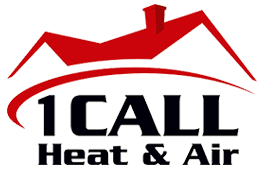FAQs
1 Call Heat & Air
Have an AC and heating-related question? We have the answer. Check out these FAQs and give us a call today for more information!
How long does an HVAC system typically last?
According to CNET, HVAC systems should last about 15 to 20 years. The amount of time you can expect from your HVAC will vary greatly depending on the specific model, how often you have it serviced, how often you change the air filter, and your specific usage patterns. Ready to schedule an air conditioning service in Little Rock, AR? Contact 1 Call Heat & Air today!
Why is my air conditioner blowing warm air?
If your air conditioner is blowing warm air, it could be due to several reasons. The most common causes include a dirty air filter, low refrigerant levels, a malfunctioning thermostat, or issues with the outside unit. If you notice any of these issues, call our team to schedule an air conditioning service in Little Rock, AR.
What does it mean if my furnace is making a strange noise?
Unusual noises from your furnace could indicate a mechanical problem, airflow reductions, or a clogged burner. If you are experiencing this, your system may need heating and air conditioning service in Little Rock, AR. Call 1 Call Heat & Air at (501) 992-0185 and let us assess the situation as soon as possible to prevent potential damage or failure of the system.
How often should I have my HVAC system serviced?
At 1 Call Heat & Air, we recommend that you have your HVAC system serviced twice per year. It's ideal to schedule your heating and air conditioning service in Little Rock, AR in the spring before the summer heat and in the fall before the winter cold sets in.
What are the signs I may need a new HVAC system?
If your HVAC system is over 15 years old, requires frequent repairs, struggles to maintain a comfortable temperature, or is resulting in unusually high energy bills, it might be time to consider a replacement. Rather than spend on regular heating and air conditioning service in Little Rock, AR, a replacement might alleviate these issues. Call 1 Call Heat & Air at (501) 992-0185 and ask us for a free quote on a new high-efficiency system.
What is the ideal temperature to set my thermostat at during the summer and winter?
The ideal temperature setting can vary based on personal comfort. However, as a team that specializes in heating and air conditioning service in Little Rock, AR, 78° in the summer and 68° in the winter are recommended to balance comfort with energy efficiency.
What is a SEER rating?
SEER stands for Seasonal Energy Efficiency Ratio. It measures the cooling efficiency of your air conditioner or heat pump. A higher SEER rating means greater energy efficiency. In order to receive the benefits of a higher SEER rating, a one-off heating or air conditioning service in Little Rock, AR isn't enough. You must upgrade the entire system. 1 Call Heat & Air will be happy to custom design an air conditioning and heating system that fits your needs and budget.
How do I know if I have a leak in my ductwork?
Signs of a ductwork leak can include unusually high energy bills, rooms that are difficult to heat or cool, and dusty air immediately after the system starts. If you notice these issues, contact our team for prompt heating and air conditioning service in Little Rock, AR.
Can I just replace the outdoor unit on an older HVAC system to save money?
While it might seem like a cost-saving measure, mismatching a new outdoor unit with an older indoor unit can lead to efficiency problems and potentially cause the new unit to fail sooner. That'll lead to even more expenses with a need for frequent heating or air conditioning service in Little Rock, AR. 1 Call Heat & Air generally recommends that the entire system be replaced at once.
What is HVAC zoning?
HVAC zoning involves dividing your home into different areas or "zones," each controlled by its own thermostat. This allows for more precise control of temperature and airflow throughout your home, potentially saving energy and improving comfort. If you have any other questions, you can ask our team over the phone or during your heating and air conditioning service in Little Rock, AR.

Share On: